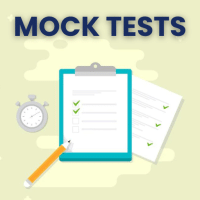MCAT Exam > MCAT Questions > Which type of immune response is the first li...
Start Learning for Free
Which type of immune response is the first line of defense against pathogens and does not require prior exposure to the pathogen?
- a)Innate immunity
- b)Adaptive immunity
- c)Active immunity
- d)Passive immunity
Correct answer is option 'A'. Can you explain this answer?
Verified Answer
Which type of immune response is the first line of defense against pat...
Innate immunity is the nonspecific defense mechanism that is present at birth. It provides immediate protection against a wide range of pathogens and does not require prior exposure to the pathogen.

|
Explore Courses for MCAT exam
|

|
Question Description
Which type of immune response is the first line of defense against pathogens and does not require prior exposure to the pathogen?a)Innate immunityb)Adaptive immunityc)Active immunityd)Passive immunityCorrect answer is option 'A'. Can you explain this answer? for MCAT 2025 is part of MCAT preparation. The Question and answers have been prepared according to the MCAT exam syllabus. Information about Which type of immune response is the first line of defense against pathogens and does not require prior exposure to the pathogen?a)Innate immunityb)Adaptive immunityc)Active immunityd)Passive immunityCorrect answer is option 'A'. Can you explain this answer? covers all topics & solutions for MCAT 2025 Exam. Find important definitions, questions, meanings, examples, exercises and tests below for Which type of immune response is the first line of defense against pathogens and does not require prior exposure to the pathogen?a)Innate immunityb)Adaptive immunityc)Active immunityd)Passive immunityCorrect answer is option 'A'. Can you explain this answer?.
Which type of immune response is the first line of defense against pathogens and does not require prior exposure to the pathogen?a)Innate immunityb)Adaptive immunityc)Active immunityd)Passive immunityCorrect answer is option 'A'. Can you explain this answer? for MCAT 2025 is part of MCAT preparation. The Question and answers have been prepared according to the MCAT exam syllabus. Information about Which type of immune response is the first line of defense against pathogens and does not require prior exposure to the pathogen?a)Innate immunityb)Adaptive immunityc)Active immunityd)Passive immunityCorrect answer is option 'A'. Can you explain this answer? covers all topics & solutions for MCAT 2025 Exam. Find important definitions, questions, meanings, examples, exercises and tests below for Which type of immune response is the first line of defense against pathogens and does not require prior exposure to the pathogen?a)Innate immunityb)Adaptive immunityc)Active immunityd)Passive immunityCorrect answer is option 'A'. Can you explain this answer?.
Solutions for Which type of immune response is the first line of defense against pathogens and does not require prior exposure to the pathogen?a)Innate immunityb)Adaptive immunityc)Active immunityd)Passive immunityCorrect answer is option 'A'. Can you explain this answer? in English & in Hindi are available as part of our courses for MCAT.
Download more important topics, notes, lectures and mock test series for MCAT Exam by signing up for free.
Here you can find the meaning of Which type of immune response is the first line of defense against pathogens and does not require prior exposure to the pathogen?a)Innate immunityb)Adaptive immunityc)Active immunityd)Passive immunityCorrect answer is option 'A'. Can you explain this answer? defined & explained in the simplest way possible. Besides giving the explanation of
Which type of immune response is the first line of defense against pathogens and does not require prior exposure to the pathogen?a)Innate immunityb)Adaptive immunityc)Active immunityd)Passive immunityCorrect answer is option 'A'. Can you explain this answer?, a detailed solution for Which type of immune response is the first line of defense against pathogens and does not require prior exposure to the pathogen?a)Innate immunityb)Adaptive immunityc)Active immunityd)Passive immunityCorrect answer is option 'A'. Can you explain this answer? has been provided alongside types of Which type of immune response is the first line of defense against pathogens and does not require prior exposure to the pathogen?a)Innate immunityb)Adaptive immunityc)Active immunityd)Passive immunityCorrect answer is option 'A'. Can you explain this answer? theory, EduRev gives you an
ample number of questions to practice Which type of immune response is the first line of defense against pathogens and does not require prior exposure to the pathogen?a)Innate immunityb)Adaptive immunityc)Active immunityd)Passive immunityCorrect answer is option 'A'. Can you explain this answer? tests, examples and also practice MCAT tests.

|
Explore Courses for MCAT exam
|

|
Signup for Free!
Signup to see your scores go up within 7 days! Learn & Practice with 1000+ FREE Notes, Videos & Tests.


















